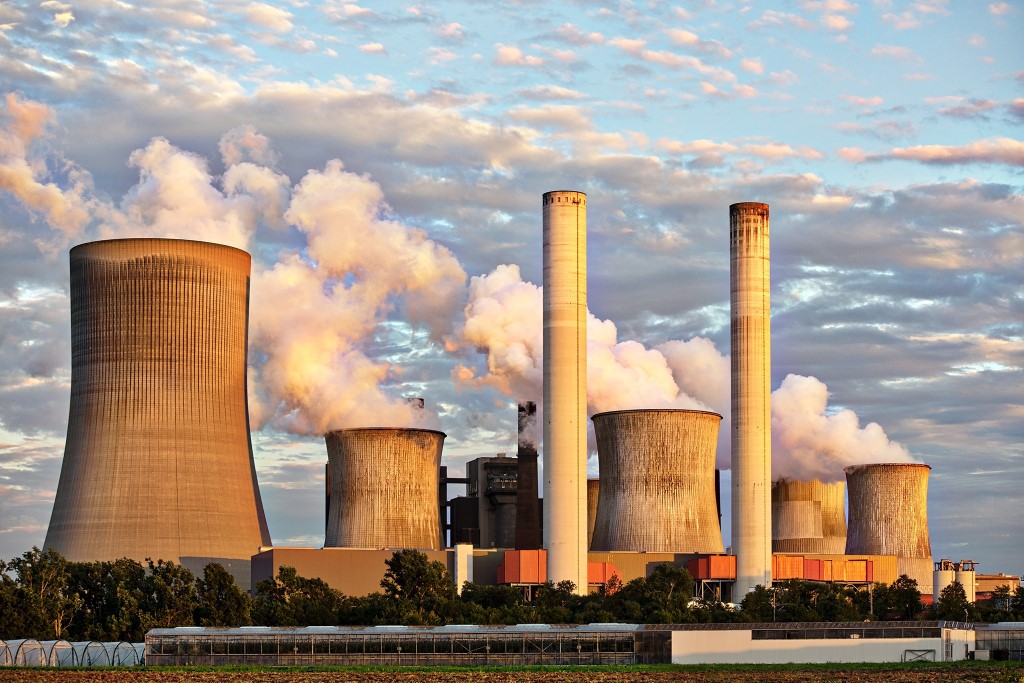It’s time for change
Composites UK’s sustainability manager, Malcolm Forsyth looks at how the composites industry can positively contribute to a future net-zero world.
As the Covid-19 pandemic recedes, an even greater global challenge is now emerging – climate change. This year several unprecedented weather events have occurred – extreme temperatures in western America, devastating floods in Germany, exceptional temperatures causing the largest daily melting of the Greenland icesheets.
Each could be explained by one-off meteorological factors, but all these events occurring together is evidence that rising global temperatures (+1°C in the last 50 years) are now having real effects globally. In the UK, we are not immune either as extremes of heat and rainfall are now occurring more frequently. All this evidence is rightly forcing national leaders to urgently consider significant actions to alleviate the impact of rising temperatures – the Paris 2015 climate agreement target of a maximum rise of 1.5°C is already looking very challenging!
Global climate change is why sustainability matters to all nations and industries – rising temperatures will affect everyone on Earth and no industry will be immune. Humanity is now consuming more resources each year than the Earth can replenish and therefore life on earth as currently lived is not sustainable. However, with the right actions taken quickly, a sustainable future world is possible, one where there will be great opportunities for materials (such as composites) delivering real benefits without major environmental impact.

This need for the right actions taken quickly is where the COP26 meeting in Glasgow in November comes in. COP26, the ‘Conference of the Parties’, will be attended by all signatories to the 1994 United Nations Framework Convention on Climate Change (UNFCCC), and the 2021 meeting is their 26th meeting, hence COP26. COP26, coming at the start of a decade critical in determining how high global temperatures will rise and how serious climate change effects will be, is their most important ever meeting. Decisions and commitments made (or not) at COP26, especially by the highest CO2-emitting nations (USA, China, India, UK, the EU) will be critical in minimising the effects of rising temperatures.
Future impact on industry
COP26 decisions will impact the composites industry, potentially very positively, because composite materials can play a vital role in moving humanity towards a net-zero world, where the quantities of greenhouse gases produced and removed from the atmosphere are balanced. We will clearly need net-zero energy sources, such as solar and wind, and composite materials are key to harnessing these energy sources. We will also need net-zero transport (where composite materials can provide lightweight strength needed for safety and fuel-efficiency) and net-zero construction (where composite materials can enable functional buildings with low emissions over a long lifetime).
These composites industry contributions to a net-zero world have recently been summarised by a Composites Leadership Forum (CLF) briefing document, well worth reading: https://compositesuk.co.uk/leadership-forum/uk-composites-strategy. A net-zero world will also require more circular value chains, a challenge for composite materials because of limited current recycling of composite end-of-life parts. Increased composites recycling infrastructure and greater use of biomaterials are two key challenges to address for the benefits of composite materials to a net-zero world to be realised. All composites industry players will be affected by climate change and must therefore adapt their products and processes so that they and their customers can operate in a net-zero manner.
Sustainability activity
Composites UK has recognised the importance of sustainability for our members, appointing a dedicated sustainability manager three years ago, and will invest further resources in sustainability going forwards to help our members tackle their key sustainability challenges, whilst helping the wider industry navigate a rapidly changing landscape.
We want to stimulate innovation and collaboration in key areas such as composite end-of-life waste recycling and greater use of bio-materials, organising collaborative projects and open access events, such as our one-day ‘Biomaterials in Composites’ conference on November 17th (see Composites UK | Supporting UK Composites) to facilitate this. We are increasing the sustainability content in our annual ‘Hub’ report (available on request) and on our website, making them key resources for composites industry information and help. Sustainability will undoubtedly be a critical part of Composites UK’s future activity.
Composites UK has several member companies already active in journeying towards net-zero, with many academic institutions actively researching ways to make composites materials with lower embodied carbon content and emissions. These members together form a ‘Sustainability Subgroup’ which meets regularly to exchange information on product and process developments, debate how progress can be accelerated and how to increase the awareness of composite materials’ role in a future net-zero world.

This group continues to grow as more members recognise the scale of the sustainability challenge. Alongside this subgroup, the CLF is reviewing how it can best support sustainability activity across the Composites industry, including important National Composites Centre (NCC)-led programmes, such as SusWind (improving wind energy industry circularity) and developing Life Cycle Assessment capability, a vital tool for determining how to reduce emissions and carbon-content over a composite part’s life cycle. These initiatives combined will positively impact the UK composites industry, with impact increasing as more composites players get involved.
Race to Zero commitment
Given the scale of the net-zero challenge, some might think “What can I do?” or “What difference can I really make?” and leave it to others to lead the way. Whilst future success will need significant contributions from governments and large multi-national companies, every company regardless of its size can play a part and that is where the ‘Race to Zero’ commitment comes in. The ‘Race to Zero’ is “a global campaign to rally climate leadership from non-government players for a healthy, resilient, zero carbon recovery that prevents future threats, creates decent jobs and unlocks inclusive, sustainable growth”.
All organisations in the ‘Race To Zero’ campaign are committed to the same goal: halving emissions by 2030 and achieving net zero emissions by 2050 (sooner if possible) and reporting their progress annually, and it is not just for large companies – there is a dedicated website for SMEs where they can also make a ‘Race to Zero’ commitment - Commitment - SME Climate hub.
Successfully meeting the climate change challenge needs all organisations playing their part, and that is why every UK composites market player should make the ‘Race to Zero’ commitment, something Composites UK will be doing and an action we urge all our members to take too. Over to you to get involved in meeting this critical challenge of pivoting towards net-zero over the coming decade.









